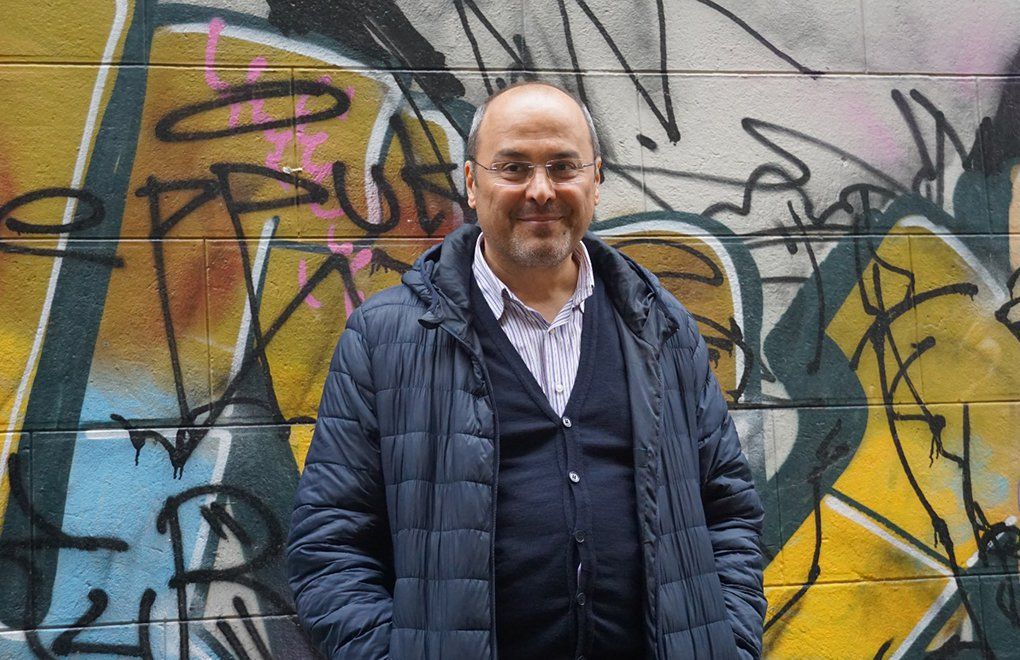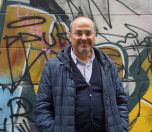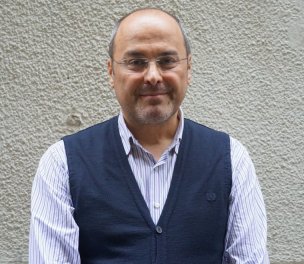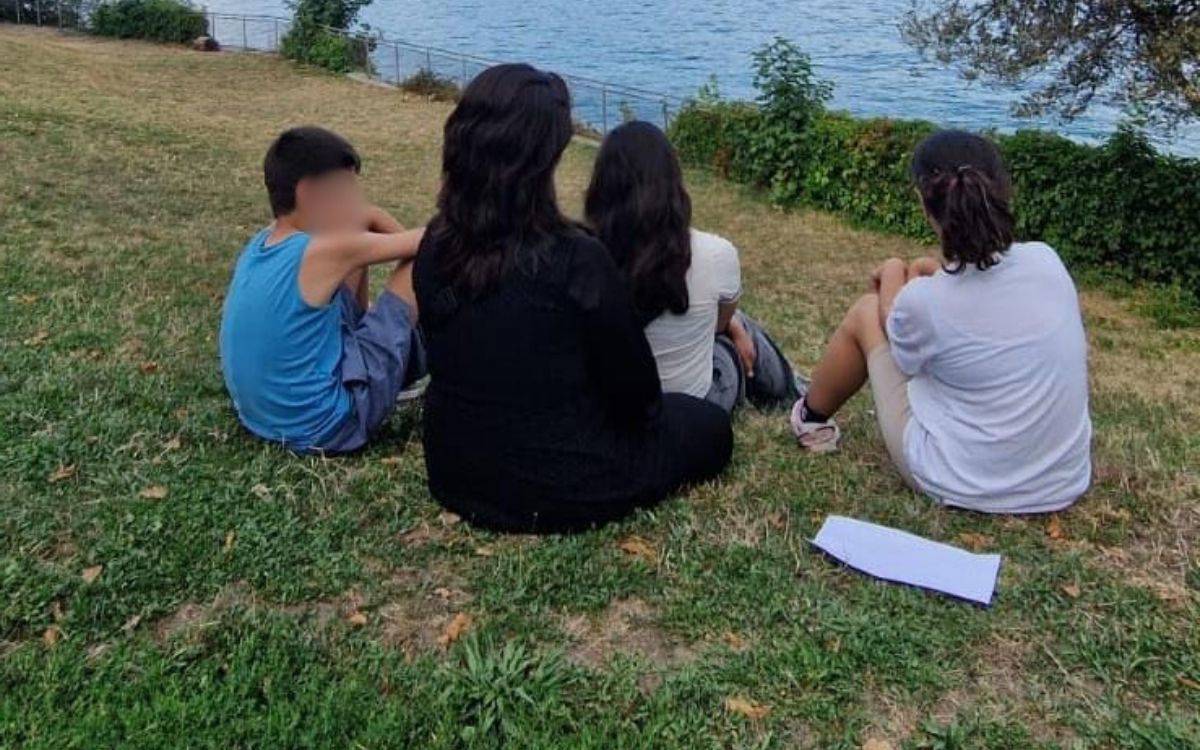Photo: Yağmur Karagöz/bianet
Click to read the article in Turkish
Prosecutors have appealed the overturn of the prison sentence given to food engineer Asst. Prof. Bülent Şık, who stood trial for publicizing the results of government-led research on the link between environmental pollution and cancer cases in various parts of Turkey.
Şık, who had also taken part in the research, was sentenced to 15 months in prison for "disclosing information about duty" in September 2019.
The 13th Penal Chamber İstanbul Regional Court of Justice overturned the verdict and acquitted him on April 6.
However, the İstanbul Regional Court of Justice Public Prosecutor appealed the judgment at the Court of Cassation, the top appeals court.
CLICK - Bülent Şık writes: A lawsuit, thanks and right to access information
In a two-page petition of appeal, the prosecutor's office alleged that the offense of "disclosing information about duty" as per article 258 of the Turkish Penal Code is the qualified form of the offense of "misconduct" (article 257) and that it is within the scope of the crimes against the reliability and functioning of public administration.
The prosecutor's office also noted that the results of the research could not be made public without permission from the administration, according to a protocol between the Ministry of Health and Akdeniz University.
That being the case, legal action should have been taken to make public the research results, it said. However, it noted, the defendant hadn't done that and made the disclosure citing the reason that the information was not published by the ministry.
Therefore, the prosecutor's office concluded that the elements of the alleged crime had occurred and the verdict of acquittal should be reversed.
Şık: Are the problems solved?
Speaking to bianet about the appeal, Şık said, "This is a study that was carried out in the provinces of Tekirdağ, Edirne and Kırklareli in the Ergene River basin and the provinces of Kocaeli and Antalya and that concerns the health of millions of people.
"In the provinces where the research was carried out, residues of various toxic chemicals were found in environments such as soil, water, air, seawater, etc., grown food products and drinking water.
"In which regions or neighborhoods these residues were more concentrated was determined one by one. It's been more than five years since the research was completed and more than three years since I made the research public through newspaper articles.
"What have the ministries, especially the Ministry of Health, the Ministry of Agriculture and Forestry and the Ministry of Environment done in this period of time? The question of which problems they have resolved or have attempted to resolve still awaits an answer. The toxic chemicals found in the research are carcinogenic, disruptive to reproductive health or disruptive to the hormonal system."
"Protecting children's health is everyone's duty"
"People living in areas where toxic chemical residues are concentrated are more likely to get some diseases than people living in a clean environment. However, there is a very critical point here: Toxic chemicals affect everyone, but they harm children the most. The younger the age, the more increased the harm.
"The negative effects of toxic chemicals start in the mother's womb, and the chemicals we are exposed to in the mother's womb are extremely influential on what diseases we will get in the future. I have stated in the hearings that the information obtained from the research imposes a responsibility on the relevant institutions and individuals to protect children's health. Yes, children are precious. Protecting their health is everyone's duty.
"It is the duty of the state and public institutions to protect environmental health and ensure that people live in a healthy environment. Doing this is a necessity not only for the next generation but also for children who are alive now, and this research told us that. It was telling us that action should be taken as soon as possible. The well-being of the public depends on our ability to protect the rights and lives of others. Therefore, this case being taken to the Court of Cassation while there is such a truth sounds bizarre to me.
"By appealing the verdict of acquittal, the ministry has shown that it is willing to take the case to the end, in other words, it is willing to punish me. But it has also shown that it is willing to conceal the results of the research. In the appeal, it once again states that the results of the research should be kept confidential and me making the research public is a crime.
"As a scientist, I will continue to work to protect human rights, I will struggle to the end against those who cause the pollution of the environment and natural life and those who shut their eyes to it.
"I don't know whether the sentence I received will be upheld by the Court of Cassation or not, but this is not important at all to me. Even if the sentence becomes final, it's not important to me. May the children of the country be well."
What happened?Food engineer Asst. Prof. Bülent Şık faced 5-12 years of jail for releasing the findings of research that he took part in under the auspices of the Ministry of Health when he worked as Deputy Director of Food Safety and Agricultural Research Center at Akdeniz University. The lawsuit was filed against Şık on charges of "disclosure of secrets about duty" (Turkish Penal Code Article No. 258); "provision of prohibited information" (Turkish Penal Code Article No. 334); and "disclosure of prohibited information" (Turkish Penal Code Article No. 336). In the indictment issued by the Prosecutor from the İstanbul Terror and Organized Crimes Investigation Bureau, the article series of Bülent Şık published on Cumhuriyet newspaper and bianet were cited as the reason for the charges brought against him. The article series of Bülent Şık subjected to an investigation was on "the Project on Assessment of Environmental Factors in the Provinces of Kocaeli, Antalya, Tekirdağ, Edirne, Kırklareli and Their Impacts on Health," the findings of which have not been published by the state officials. In his third and final hearing held at the İstanbul 2nd Penal Court of First Instance on September 26, 2019, Şık was sentenced to 1 year and 3 months in prison on the charge of "disclosing information about duty" while he was acquitted of "providing prohibited information". The court did not suspend the prison sentence of Şık on the grounds that "he had not regretted". The verdict of conviction was taken to the court of appeal, which would either reverse or uphold the prison sentence. Having signed the Peace Academics' declaration of "We will not be a party to this crime," Şık had been discharged from academia by the Statutory Decree no. 677. |
(EMK/VK)


















